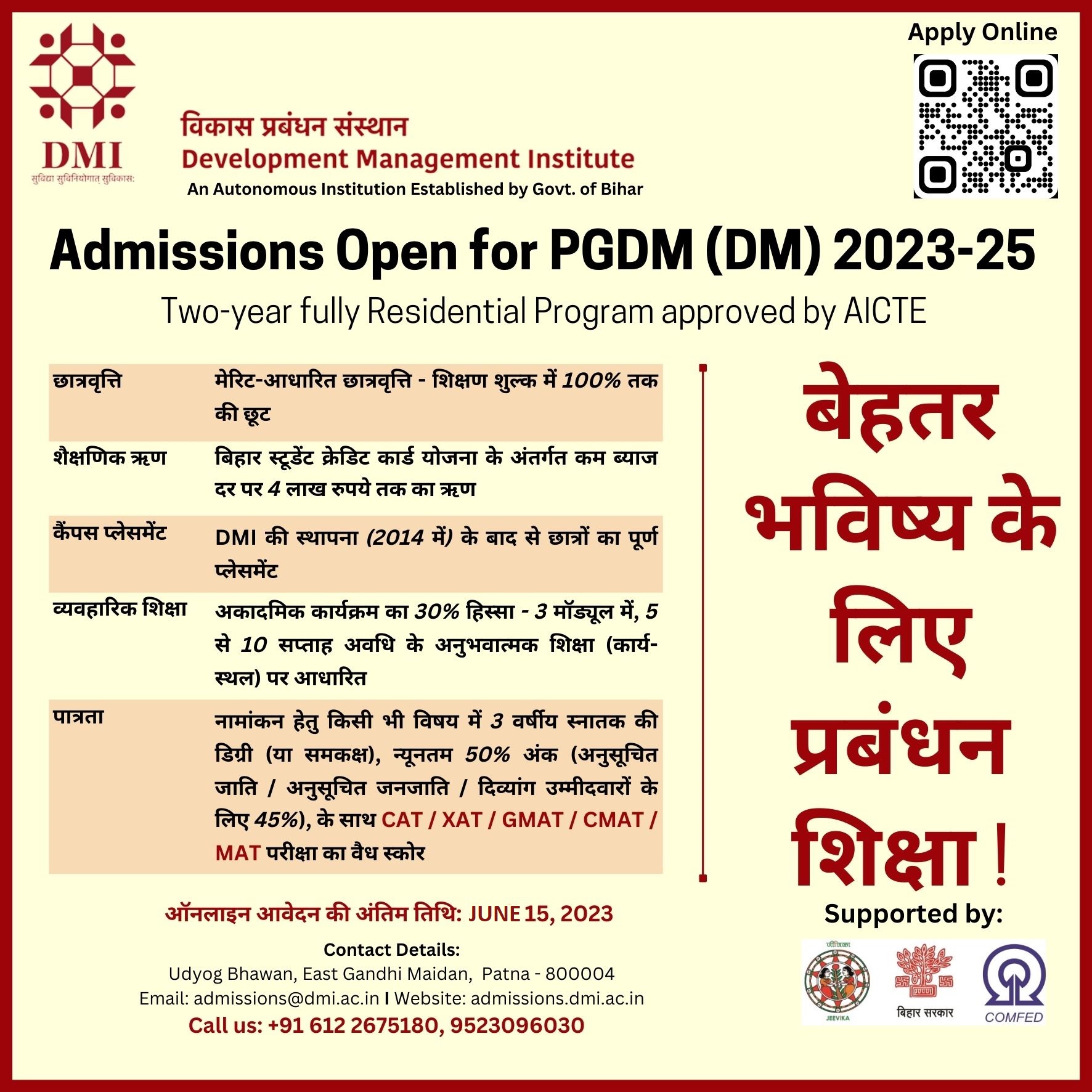There is an urgent need for striking an optimal balance between societal and individual orientation through a synergetic alliance among the multiple stakeholders. DMI aims at meeting this dire need by developing managerial and leadership competencies through the processes of integral learning, professionalisation, trans-disciplinary research, and conscientisation, as explained below:
Integral learning aims to leverage various forms of knowledge such as conceptual knowledge, experiential knowledge, factual and procedural knowledge, and propositional knowledge to evolve a coherent world view and embraces the 4D cycle ‘Discovery, Dream, Design, and Doing’ phases of Appreciative Inquiry. This encompasses both tacit and explicit knowledge.
Trans-disciplinary research connotes a strategy that transcends many disciplinary boundaries to create a holistic approach. It applies to efforts focused on problems that transcend the boundaries of two or more disciplines and helps comprehend the ever-growing complexities of an inter-dependent world. This also involves self-transcendence and ever-widening inclusive perspectives.
Professionalisation is the social process by which any trade or occupation transforms itself into a true ‘profession of the highest integrity and competence’. Professionalisation demands inculcating academic qualifications; expert and specialised knowledge in the field; excellent practical and literary skills; high-quality work output; high standard of professional ethics; efficient work habits, and motivation to working independently.
Conscientisation means an awakening of consciousness - a change in a person involving critical awareness of his or her own identity and situation in nature and in society; the capacity to analyze causes and consequences; and to act logically and reflectively so as to transform reality. Praxis, or cycles of reflection-action, as Freire calls, are essential to this process leading to spiral learning.
Last date for submitting online application for Post Graduate Diploma in Development Management is Feb 28, 2026.
Click here for >eligibility, Fee-Structure, Course Structure, Scholarships, Selection Criteria, and Placements








